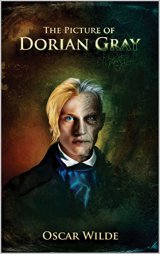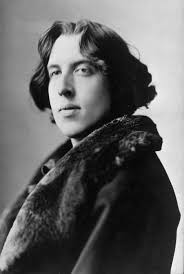The Picture of Dorian Gray Page #17
The Picture of Dorian Gray is a Gothic and philosophical novel by Oscar Wilde, first published complete in the July 1890 issue of Lippincott's Monthly Magazine. Fearing the story was indecent, prior to publication the magazine's editor deleted roughly five hundred words without Wilde's knowledge.
He began to wonder whether we could ever make psychology so absolute a science that each little spring of life would be revealed to us. As it was, we always misunderstood ourselves and rarely understood others. Experience was of no ethical value. It was merely the name men gave to their mistakes. Moralists had, as a rule, regarded it as a mode of warning, had claimed for it a certain ethical efficacy in the formation of character, had praised it as something that taught us what to follow and showed us what to avoid. But there was no motive power in experience. It was as little of an active cause as conscience itself. All that it really demonstrated was that our future would be the same as our past, and that the sin we had done once, and with loathing, we would do many times, and with joy. It was clear to him that the experimental method was the only method by which one could arrive at any scientific analysis of the passions; and certainly Dorian Gray was a subject made to his hand, and seemed to promise rich and fruitful results. His sudden mad love for Sibyl Vane was a psychological phenomenon of no small interest. There was no doubt that curiosity had much to do with it, curiosity and the desire for new experiences, yet it was not a simple, but rather a very complex passion. What there was in it of the purely sensuous instinct of boyhood had been transformed by the workings of the imagination, changed into something that seemed to the lad himself to be remote from sense, and was for that very reason all the more dangerous. It was the passions about whose origin we deceived ourselves that tyrannized most strongly over us. Our weakest motives were those of whose nature we were conscious. It often happened that when we thought we were experimenting on others we were really experimenting on ourselves. While Lord Henry sat dreaming on these things, a knock came to the door, and his valet entered and reminded him it was time to dress for dinner. He got up and looked out into the street. The sunset had smitten into scarlet gold the upper windows of the houses opposite. The panes glowed like plates of heated metal. The sky above was like a faded rose. He thought of his friend's young fiery-coloured life and wondered how it was all going to end. When he arrived home, about half-past twelve o'clock, he saw a telegram lying on the hall table. He opened it and found it was from Dorian Gray. It was to tell him that he was engaged to be married to Sibyl Vane. CHAPTER 5 "Mother, Mother, I am so happy!" whispered the girl, burying her face in the lap of the faded, tired-looking woman who, with back turned to the shrill intrusive light, was sitting in the one arm-chair that their dingy sitting-room contained. "I am so happy!" she repeated, "and you must be happy, too!" Mrs. Vane winced and put her thin, bismuth-whitened hands on her daughter's head. "Happy!" she echoed, "I am only happy, Sibyl, when I see you act. You must not think of anything but your acting. Mr. Isaacs has been very good to us, and we owe him money." The girl looked up and pouted. "Money, Mother?" she cried, "what does money matter? Love is more than money." "Mr. Isaacs has advanced us fifty pounds to pay off our debts and to get a proper outfit for James. You must not forget that, Sibyl. Fifty pounds is a very large sum. Mr. Isaacs has been most considerate." "He is not a gentleman, Mother, and I hate the way he talks to me," said the girl, rising to her feet and going over to the window. "I don't know how we could manage without him," answered the elder woman querulously. Sibyl Vane tossed her head and laughed. "We don't want him any more, Mother. Prince Charming rules life for us now." Then she paused. A rose shook in her blood and shadowed her cheeks. Quick breath parted the petals of her lips. They trembled. Some southern wind of passion swept over her and stirred the dainty folds of her dress. "I love him," she said simply. "Foolish child! foolish child!" was the parrot-phrase flung in answer. The waving of crooked, false-jewelled fingers gave grotesqueness to the words. The girl laughed again. The joy of a caged bird was in her voice. Her eyes caught the melody and echoed it in radiance, then closed for a moment, as though to hide their secret. When they opened, the mist of a dream had passed across them. Thin-lipped wisdom spoke at her from the worn chair, hinted at prudence, quoted from that book of cowardice whose author apes the name of common sense. She did not listen. She was free in her prison of passion. Her prince, Prince Charming, was with her. She had called on memory to remake him. She had sent her soul to search for him, and it had brought him back. His kiss burned again upon her mouth. Her eyelids were warm with his breath. Then wisdom altered its method and spoke of espial and discovery. This young man might be rich. If so, marriage should be thought of. Against the shell of her ear broke the waves of worldly cunning. The arrows of craft shot by her. She saw the thin lips moving, and smiled. Suddenly she felt the need to speak. The wordy silence troubled her. "Mother, Mother," she cried, "why does he love me so much? I know why I love him. I love him because he is like what love himself should be. But what does he see in me? I am not worthy of him. And yet--why, I cannot tell--though I feel so much beneath him, I don't feel humble. I feel proud, terribly proud. Mother, did you love my father as I love Prince Charming?" The elder woman grew pale beneath the coarse powder that daubed her cheeks, and her dry lips twitched with a spasm of pain. Sybil rushed to her, flung her arms round her neck, and kissed her. "Forgive me, Mother. I know it pains you to talk about our father. But it only pains you because you loved him so much. Don't look so sad. I am as happy to-day as you were twenty years ago. Ah! let me be happy for ever!" "My child, you are far too young to think of falling in love. Besides, what do you know of this young man? You don't even know his name. The whole thing is most inconvenient, and really, when James is going away to Australia, and I have so much to think of, I must say that you should have shown more consideration. However, as I said before, if he is rich ..." "Ah! Mother, Mother, let me be happy!"
Translation
Translate and read this book in other languages:
Select another language:
- - Select -
- 简体中文 (Chinese - Simplified)
- 繁體中文 (Chinese - Traditional)
- Español (Spanish)
- Esperanto (Esperanto)
- 日本語 (Japanese)
- Português (Portuguese)
- Deutsch (German)
- العربية (Arabic)
- Français (French)
- Русский (Russian)
- ಕನ್ನಡ (Kannada)
- 한국어 (Korean)
- עברית (Hebrew)
- Gaeilge (Irish)
- Українська (Ukrainian)
- اردو (Urdu)
- Magyar (Hungarian)
- मानक हिन्दी (Hindi)
- Indonesia (Indonesian)
- Italiano (Italian)
- தமிழ் (Tamil)
- Türkçe (Turkish)
- తెలుగు (Telugu)
- ภาษาไทย (Thai)
- Tiếng Việt (Vietnamese)
- Čeština (Czech)
- Polski (Polish)
- Bahasa Indonesia (Indonesian)
- Românește (Romanian)
- Nederlands (Dutch)
- Ελληνικά (Greek)
- Latinum (Latin)
- Svenska (Swedish)
- Dansk (Danish)
- Suomi (Finnish)
- فارسی (Persian)
- ייִדיש (Yiddish)
- հայերեն (Armenian)
- Norsk (Norwegian)
- English (English)
Citation
Use the citation below to add this book to your bibliography:
Style:MLAChicagoAPA
"The Picture of Dorian Gray Books." Literature.com. STANDS4 LLC, 2025. Web. 17 Mar. 2025. <https://www.literature.com/book/the_picture_of_dorian_gray_869>.








Discuss this The Picture of Dorian Gray book with the community:
Report Comment
We're doing our best to make sure our content is useful, accurate and safe.
If by any chance you spot an inappropriate comment while navigating through our website please use this form to let us know, and we'll take care of it shortly.
Attachment
You need to be logged in to favorite.
Log In